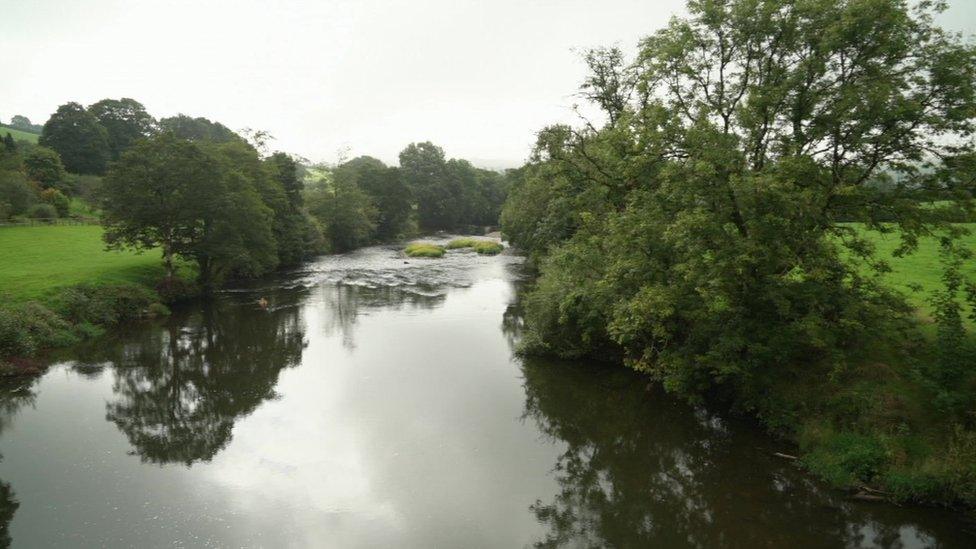New woodlands created in tree planting drive
- Published

Overall the project aims to create 3,150 hectares (7,780 acres) of woods by March 2025
Thousands of acres of new woodlands along rivers are to be planted to help manage flood risks and boost water quality and wildlife.
The "woodlands for water" project is in six areas including Devon and Cumbria.
Forestry minister Lord Goldsmith said "this is a hugely exciting and untapped area for woodland creation".
Trees can block the run-off of pollutants into waterways, keeping them cleaner, and slow the flow of water to manage flood risks, officials said.
The scheme has been launched by the Environment Department (Defra), with backing from the National Trust, Woodland Trust, the Rivers Trust and Beaver Trust.
Creating woodland corridors along rivers can also help wildlife and make rivers more resilient to climate change by providing shade and cooling water temperatures.
Lord Goldsmith said: "The benefits of planting trees by rivers are vast - from helping biodiversity recover by creating more natural riverbanks; to slowing the flow of surface water to reduce the risk of flooding; and improving water quality by buffering rivers from harmful agricultural pollution."
Planting will take place on the National Trust estate and in six catchment areas across the country:
Taw and Torridge in Devon and Somerset
Tamar and Fowey in Devon and Cornwall
Bure, Glaven, Stiffkey, Wensum, Heacham, Lark, Gaywood and Wissey catchment in Norfolk
Eden and Derwent in Cumbria
Teme in Shropshire and Worcestershire
Wye and Usk in Gloucestershire and Herefordshire.
Farmers and landowners will be able to apply for funding through the Forestry Commission's new England woodland creation offer, external.
National Trust director of land and nature, Harry Bowell, said: "With 90% of UK floodplains 'not fit for purpose' and creating flood issues for communities, we fully recognise the value of trees to our river corridors in helping to slow flood waters, soak up carbon and keep rivers cool in the face of rising temperatures."